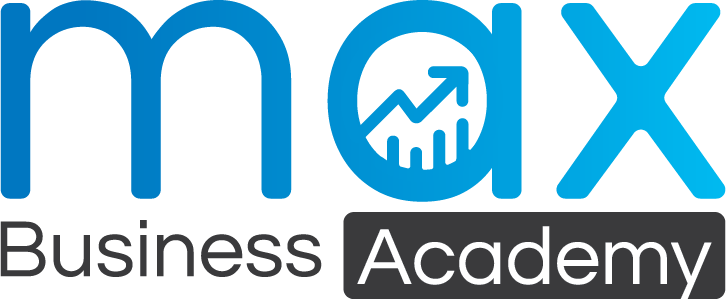Being a successful coach means asking evocative coaching questions from your client. And how do you define evocative? Well, there are many questions that could fall into this category so it’s worth knowing which of them are powerful coaching questions and which aren’t. Here are ten coaching questions to ask your clients to begin with.
Best Practices of Asking Coaching Questions
Before we get started, let’s have a look at the best practice for asking these questions. Always remember that you should ask questions that:
- Generate curiosity in your clients. This will keep them interested and invested in the conversation.
- Are thought-provoking. You need to keep the conversation going by making them actually think about their answers.
- Generate creativity and innovation. You need to be open to new possibilities and discuss them with your clients.
- Prompt more questions. The conversation can only be productive if it covers as many crucial points as possible.
- Lead. You want to be guiding your client through the process gradually rather than revealing everything to them at once.
- Aren’t rhetorical. They usually sound quite judgmental and don’t actually get you anywhere.
#1 “What are you missing from your life right now?”
As a coach, this is the first thing you will want to know about them because this will help you determine the direction you will need the session to go in. Hence, this question is the best one to begin with. A lot of people don’t actually know what they are missing from their lives, so you might have to work it out with them by discussing the matter. But even if you find that you are both stuck, don’t skip the question. Instead, set it aside for later and use other questions to find out the information necessary to go back to it and answer it.
#2 “What is right/wrong with where you are right now?”
The next question you should ask is about their current situation in life. This can concern anything from their family status to their career – let them think about all of these details and tell you what they like and dislike about their situation. Remember that it’s crucial to discuss both the good and the bad because this is the only way to get an accurate picture of where they are and how they feel about it.
#3 “What things are you good/bad at?”
Once you’ve asked the first two questions, you can focus on something more personal and ask your client what things they think they are good at and they are bad at. Maybe they know how to cook, or maybe they aren’t very good at swimming – both of these are essential for the session you are about to have with them. Make them proud of their skills or talents and identify the things they want to become better at.
#4 “If you could change one thing right now, what would it be?”
Sometimes you don’t need to try and ask very difficult questions. Instead, opt for something simpler and ask them what they’d like to change in their life if you could change it instantly. Tell them that it doesn’t have to be something particularly big or important – just something they are perhaps bothered by. If it is something relatively easy to change, encourage them to work on it themselves later on.
#5 “When you were a kid, who were your role models?”
Every person is shaped by their environment to some degree which is why it is so important to discuss your client’s childhood with them. Ask them what they were like as a kid and talk about who their role models were and why they chose them. As Willard Head from the custom writing reviews site Writing Judge puts it, “Even as children, we already show the traits that will form our personality as adults.”
#6 “How would you describe yourself in three words?”
Another relatively easy question to ask is about the client’s description of themselves. Ask them to describe themself in just three words. This will help them focus on their most prominent qualities. Alternatively, they might decide to get to something specific even if these traits they list aren’t that prominent in their personality. In other words, they might not get an entirely accurate answer, but it can still help you coach them better during the session.
#7 “How will you know that you have achieved your goal?”
Asking about your client’s goals may seem a little early at the beginning of the session, but that’s exactly why you need to focus on a somewhat different aspect of goal achievement. Discuss with your client how they will know that they have achieved their goal. This will help them focus on their emotions before achieving the goal and once they achieve it – and how to differentiate between the two.
#8 “What is the first step you can take?”
If you manage to determine the client’s goal while discussing the previous question, you might want to move on to a more practical approach. Their first step towards the goal is important, so try to focus on that. It can be something small like an insignificant change in their diet (if they want to lose weight) or a day off (if they want to heal mentally).
#9 “What do you not want me to ask you?”
Before you actually start the session, you need to discuss some details about it to make sure that you are working through the points your client wants to cover. Likewise, you also need to find out what they don’t want to talk about as this could lead the conversation in the wrong direction or make them feel uneasy.
#10 “What do you hope to achieve by the end of the session?”
Last but not least, ask them about their expectations about the session. Do they want to have a better understanding themselves? Or do they expect to have a ten-year plan for their future? If their expectations are too high, warn them that you can’t solve all of their problems and that they are the only one who is responsible for their own success.
Final Thoughts
To sum up, these powerful questions to ask during an interview can help you get started with your client before you start coaching them. Make sure that you use at least a few of them before proceeding to the main purpose of your discussion.
About the Author
Melissa Mauro is a freelance writer who creates quality and original content. She is working for the companies Best Writers Online and Online Writers Rating writing services review. She believes that creativity and improvement are things, which distinguish a good writer..










